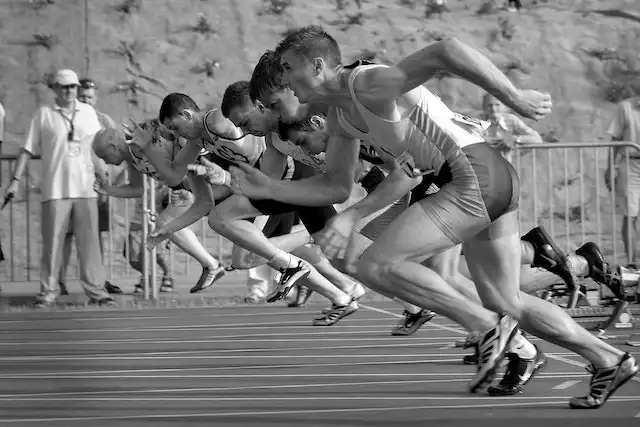Peak performance in sports is the ultimate goal for athletes. It’s the moment when every ounce of training, dedication, and skill comes together to achieve outstanding results. But how do athletes reach this pinnacle of achievement? The answer lies in the meticulous application of scientific principles to training. In this article, we delve into the science behind peak performance and uncover how athletes optimize their training to achieve greatness.
- Understanding the Physiology
The first step towards peak performance is understanding the intricate workings of the human body. Athletes collaborate with sports scientists and trainers to comprehend how various physiological systems, such as cardiovascular, muscular, and respiratory, contribute to their sport. This knowledge forms the foundation for targeted training programs.
2. Periodization: The Art of Planning
Athletes follow a structured training plan known as periodization. This method divides the training cycle into specific phases, each with a distinct focus. These phases include the preparation phase, where athletes build a solid foundation, the strength and conditioning phase, skill development, and finally, the peaking phase, where the focus shifts to maximizing performance during competitions.
3. Nutritional Optimization
Nutrition plays a critical role in an athlete’s ability to perform at their best. Sports nutritionists work closely with athletes to design diets that provide optimal energy, macronutrient ratios, and hydration. Proper nutrition ensures sustained energy levels, muscle recovery, and overall well-being, all of which contribute to peak performance.
4. Rest and Recovery
Peak performance isn’t solely about intense training. Adequate rest and recovery are equally important. Athletes integrate techniques such as active recovery, massage, and quality sleep into their routines to facilitate muscle repair, prevent burnout, and optimize training adaptations.
5. Utilizing Sports Psychology
The mind is a powerful tool in achieving peak performance. Athletes work with sports psychologists to develop mental resilience, focus, and concentration. Visualization, goal setting, and mindfulness techniques are employed to manage stress, anxiety, and self-doubt, ultimately enhancing overall performance.
6. Data-Driven Training
Advancements in technology have revolutionized athletic training. Athletes utilize wearable devices to monitor heart rate, sleep patterns, and other performance metrics. This data is then analyzed to fine-tune training programs, identify weaknesses, and make real-time adjustments for optimal progress.
7. Skill Acquisition and Motor Learning
Peak performance involves the mastery of complex motor skills. Athletes undergo deliberate practice to hone their techniques. With the guidance of coaches and performance analysts, they break down movements into smaller components, progressively refining their skills through repetition and feedback.
8. Biomechanics and Performance Analysis
Biomechanical analysis allows athletes to optimize movement efficiency. High-speed cameras and motion capture technology provide insights into stride length, joint angles, and force application. These analyses inform adjustments that minimize energy wastage and enhance performance.
9. Strength and Conditioning
A robust strength and conditioning program is integral to peak performance. Athletes engage in targeted exercises that improve muscle strength, power, and endurance specific to their sport. This conditioning enhances performance while reducing the risk of injuries.
10. Mind-Body Synchronization
Achieving peak performance involves synchronizing body and mind. Techniques like yoga, meditation, and breath control promote relaxation, mental clarity, and self-awareness. This mind-body connection contributes to heightened focus, emotional regulation, and overall performance optimization.
Conclusion
The science of peak performance underscores the extraordinary dedication that athletes invest in their training. By integrating physiological knowledge, periodization, nutrition, recovery strategies, sports psychology, data analysis, skill refinement, biomechanics, and mind-body synchronization, athletes create a comprehensive framework for achieving their best. As science continues to evolve, athletes will uncover new methods to optimize their training, pushing the boundaries of human potential and redefining the limits of peak performance in the world of sports.



